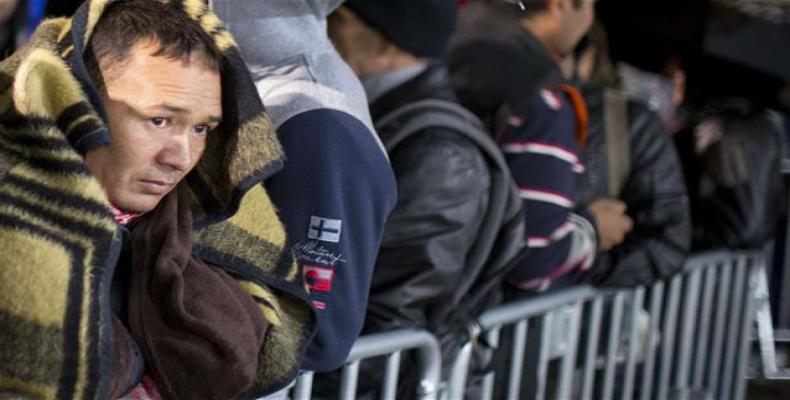Brussels, October 28 (RHC)-- More than 3,800 people died trying to take risky routes from the Mediterranean to Europe as the EU continues to introduce anti-refugee policies. The year 2016 has become the deadliest year on record for refugees attempting to cross the Mediterranean to reach Europe, the United Nations said Wednesday, saying that more than 3,800 people died during the dangerous trip with more than two months to go until the year’s end.
"We can confirm that at least 3,800 people have been reported dead or missing in the Mediterranean Sea so far this year, making the death toll in 2016 the highest ever recorded," U.N. Refugee Agency spokesman William Spindler told AFP in an email, as the figures passed last year's mark of 3,771.
The somber milestone was reached despite a significant decline in refugees crossing this year compared to 2015. Last year, more than a million people reached Europe via the Mediterranean, but crossings so far this year remain below 330,000.
Numbers began dropping dramatically following a March deal between Turkey and the European Union to crack down on migrants and refugees arriving from Turkey to Greece via the Aegean Sea. While it was presented as a solution to the refugee crisis – the continent’s worst since World War II – the deal appears to have worsened the plight of many asylum seekers, who are now being pushed to travel the far riskier option of crossing the Mediterranean from North Africa.
The most dangerous route has been between Libya and Italy, where the U.N. has recorded one death for every 47 arrivals this year. Meanwhile, for the much shorter Turkey to Greece route, the likelihood of drowning was one in 88, according to the UNHCR.
The agency explained that death rates have spiked despite a nearly a two-thirds drop in total migration because smugglers are "often using lower quality vessels — flimsy inflatable rafts that do not last the journey."
Smugglers also appear to be packing increasing numbers of people on boats, possibly to drive up profits, the UNHCR added. Shipwrecks involving more people have reduced rescue rates, the agency added, also noting that several disasters this year have been linked to poor weather conditions.
Many countries in the EU have also introduced anti-refugee policies such as building walls and fences around their borders as has been the case with Austria and Hungary. Other countries, led by conservative parties, have refused to take part in a quota system for distributing refugees fairly among EU nations.
The European bloc recently introduced a resolution labeling Afghanistan a “safe country,” which will allow EU countries – even the relatively welcoming ones like Germany – to deport Afghan refugees seeking asylum because they are so-called “economic migrants” rather than war refugees.
However, as is the case with the Turkey-EU deal, such fixes are not stopping the influx of refugees but instead forcing them to choose more dangerous routes and exploitive arrangements to make it to richer EU countries.
2016 Deadliest Year for Refugees Trying to Reach Europe


